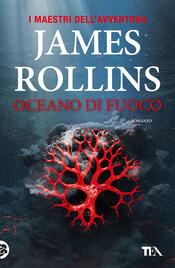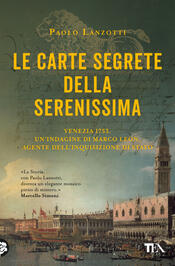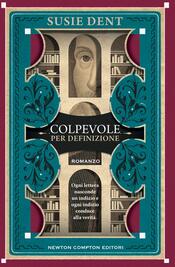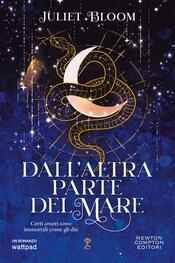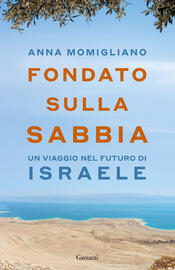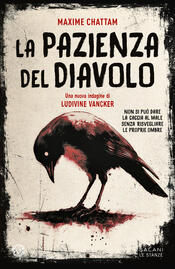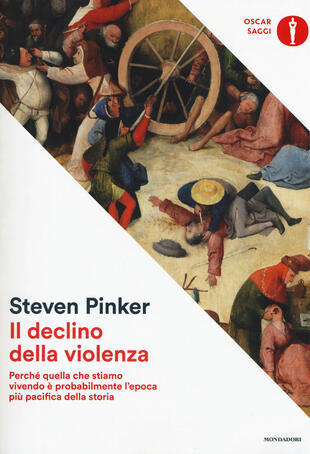

Il declino della violenza. Perché quella che stiamo vivendo è probabilmente l'epoca più pacifica della storia
Acquistalo
Sinossi
Il XX secolo, con lo spaventoso numero di vittime provocate da due guerre mondiali e vari genocidi, è stato definito "il secolo più violento della storia", e l'alba del nuovo millennio sembra prefigurare scenari non meno inquietanti. Eppure, anche se può sembrare incredibile, in passato la vita sul nostro pianeta è stata di gran lunga più violenta, e quella che stiamo vivendo è probabilmente "l'era più pacifica della storia della nostra specie". A sostenere questa tesi è Steven Pinker, il quale dimostra, statistiche alla mano, che il calo della violenza può essere addirittura quantificato. E le cifre che fornisce sono impressionanti. Le guerre tribali hanno causato, in rapporto alla popolazione mondiale del tempo, quasi il decuplo dei morti delle guerre e dei genocidi del Novecento. Il tasso di omicidi nell'Europa medievale era oltre trenta volte quello attuale. Schiavitù, torture, pene atroci ed esecuzioni capitali per futili motivi sono state per millenni ordinaria amministrazione, salvo poi essere bandite dagli ordinamenti giuridici di tutte le nazioni democratiche. Ma che cosa ha determinato questo declino della violenza? Secondo Pinker, tale processo è dovuto al trionfo dei "migliori angeli" della nostra natura (empatia, autocontrollo, moralità e ragione) sui nostri "demoni interiori" (predazione, vendetta, sadismo e ideologia), un trionfo reso possibile dalle istanze civilizzatrici su cui l'Occidente ha fondato la propria identità.
- ISBN:
- Casa Editrice:
- Pagine: 898
- Data di uscita: 23-05-2017
Recensioni
The Skeptic’s Peace Pinker warns the reader upfront that the book is huge, and with more than 800 dense pages there is no question about it. It is so wide-ranging that it is fortunate it has such a memorable title - the reader might have easily lost track of where it is all supposed to be heading. In Leggi tutto
This seems like a stunning misstep by the normally brilliant Steven Pinker. His ability to write with extraordinary force and clarity has been demonstrated repeatedly in two separate areas of expertise -- linguistics and cognitive science. Unfortunately, the brilliance of his earlier books in those
When an academic steps outside his or her field of expertise, it's best to brace yourself for a torrent of nonsense. Steven Pinker, whose work in linguistics and psychology I greatly enjoy, has made a habit of using that work as a springboard to foist his pet political theories on the public. Wherea Leggi tutto
Make me a t-shirt that says “I read an 800-page book and all I got from it was this lousy review.” The Good: There’s a nice irreverent romp through the Bible, he shows what monsters "chivalrous" knights were, shows why we shouldn't be so afraid of terrorist attacks or child abductions or Iran. The bad Leggi tutto
I love optimistic books, and there is a lot of optimism in the almost 800 pages of "The better angels of our nature". At the same time, I find it impossible to give a single opinion about this behemoth of a book, because I found some of its elements truly excellent, some ok, and some absolutely scre Leggi tutto
This book asserts that violence has decreased. I can set this aside as a worthy discussion. However, that is just the hook to catch readers. The purpose here is spreading ideologies to explain why violence has decreased. The Bad : Well, it turns out Pinker puts much of his faith in the status quo (i.e. Leggi tutto
In this book, Steven Pinker explores a very controversial thesis, that is, violence is declining. Different types of violence are declining on multiple time scales. It would seem like the twentieth century had some major wars and plenty of genocide to make his thesis sound rather foolish. But in the Leggi tutto
Citazioni
Al momento non ci sono citazioni, inserisci tu la prima!





